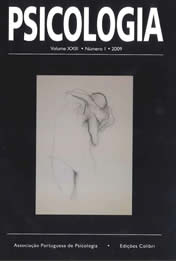TV and beliefs about social reality
DOI:
https://doi.org/10.17575/rpsicol.v23i1.316Keywords:
-Abstract
This study aimed to understand the relationship between television viewing (time and violent content) and the construction of social beliefs regarding social reality, such as fear of victimization, interpersonal mistrust and locus of control, as suggested by Gerbner and his associates in the Cultivation Theory. Questionnaires were administrated to 226 students ranged in age from 15 to 18. ANOVAS were conducted to explore the impact of television exposure, television violent content viewing, gender and family social status on the students’ social beliefs. Results showed that the relationship between television exposure and some social beliefs exists, although not as linearly as defended by Gerbner and associates when launching the foundations of the Cultivation Theory. Among other results, on the personal fear-external control factor it was found that high television exposure had opposite effects on viewers according to their gender (...)


